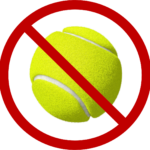Toys and Treats for Your Dog’s Oral Health
Selecting the best chew toys and treats for your dog’s oral health can be overwhelming. Pet stores and online sources offer thousands of options, many of which claim to “freshen breath,” “reduce plaque and tartar,” or “strengthen teeth”. The truth is that some of these treats and toys are not always beneficial for your pet’s teeth and in some cases can be harmful. Veterinarians unfortunately encounter evidence of dental damage from treats and chews on a regular basis – fractured teeth, erosion and abrasion of dental enamel, pulpitis (inflammation of the interior of the tooth due to blunt trauma), and damage to the gum tissue. These dental problems can be painful and can increase the risk of local and systemic infections.
The following is a list of some treats and toys to avoid:
1. Hard plastic and nylon bones: these toys are often made of a material that is harder than the dog’s teeth, causing fractures as they chew. The most common teeth affected are the upper fourth premolars, which are two of the major teeth used to chew dog’s food.
2. Animal hooves and antlers: These toys are also often hard enough to fracture dog’s teeth. In addition to dental trauma, if dogs swallow part of these products, they can cause obstruction of the digestive tract.
3. Animal bones (such as marrow bones, knuckle bones, soup bones): These treats are problematic for many reasons. If the bones are fresh, they are typically softer than dog’s teeth but they splinter when they are chewed, which can cause damage to the gum tissue, the roof of the mouth or the digestive tract as the splinters are swallowed and digested. If the bones are not as fresh, they are usually harder than the dog’s teeth and often result in dental fractures. Additionally, feeding raw bones increases the risk of food-borne illness.
4. Ice cubes: Large ice cubes are often hard enough to cause trauma to teeth. If you elect to feed your dog ice, it is best to give softer smaller (crushed) pieces.
5. Compressed rawhide: There are several rawhide treats that can be beneficial for removing plaque and tartar – these treats are usually flatter and thinner pieces of dried hide. However, the compressed rawhides (which consist of several layers of rawhide pressed together and often molded into shapes) tend to be much harder and can result in dental fractures.
6. Tennis balls: Most people don’t realize the potential damage caused by tennis balls. The nylon “fuzz” on the balls tends to be very abrasive and can cause damage to the enamel when the balls are chewed. Additionally, the fuzz can retain grit from the ground, which can be further damaging to the teeth. It is best to select “dog-friendly” rubber balls that don’t have exterior fuzz, especially if your dog is prone to chewing these balls.
7. Rope Toys: These toys are somewhat controversial among veterinary dentists. Although they provide a softer substrate that is less likely to fracture the teeth, they can present a few other dangers. First, particularly if the toy is nylon (rather than cotton), the threads of the toy can get trapped between teeth and cause lacerations to the gum tissue. Second, if pieces of these toys are swallowed they pose a significant risk of obstruction of the digestive tract.
There are a few guidelines that can be used when selecting a treat or toy for your pet. It is generally recommended that you adhere to the “rule of thumb” which suggests that you should only provide chew toys or treats in which you can make a thumbnail imprint. Additionally, the Veterinary Oral Health Council (VOHC) provides a list of carefully-reviewed products that have been shown to benefit dog’s oral health. Products that are included in this list have the “VOHC-approved” seal on the package and can be found on their website.

Dr. Amanda McMurphy graduated from the Tufts University School of Veterinary Medicine in 2004. After completing her internship at Friendship in 2005, she joined our team full-time. Dr. McMurphy works in our Dental and Primary Care departments.
*Featured image courtesy of Labrador Training HQ.

